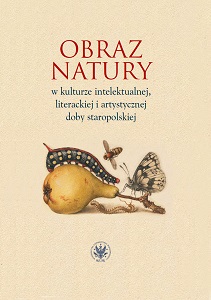Maîtres et possesseurs de la nature Filozoficzne uzasadnienie nowożytności
Maîtres et possesseurs de la nature. The Philosophical Justification of Modernity
Author(s): Jakub Koryl
Subject(s): Cultural history, Studies of Literature, Theory of Literature
Published by: Wydawnictwa Uniwersytetu Warszawskiego
Keywords: modernity; Cartesianism; Socinianism; rationalism; Prometheism; subject; res cogitans; system of thought; superstition; miracle; natura naturans; rational grammar; Bacon; Descartes; Spinoza; Arnauld
Summary/Abstract: The text discusses fundamental and profoundly distinctive changes which occurredin understanding the nature in Polish and European 17th century philosophy. Due tothe specifi c nature of these transformations and intellectual, separatist and culturalintentions of philosophers of that time, the main issue of this work is not nature itself,but the answer to the question how the epochal identity, signifi cance and distinctivenessof modern age can be justifi ed in exploring nature as the object of reasoning. The aimofthe text is to reconstruct the main metaphysical stance of modern age and its modernsystem of thought. The text consists of four parts. The fi rst part discusses twohistoriosophical ideas of the modern era: discontinuity of Mediterranean culture andmodernity as a radically new beginning. The key problem here is the philosophicalcognition and rejecting superstition as a form of thought based on someone else’s authority. The second part discusses several issues: the reconstruction of a modernsystem of thought based on the 17th century idea of subjectivity; the methods employedin rejecting sermocinal thinking and applying the realistic one; a new concept of knowledgeand truth; a new idea of nature – signifi cantly broaden – as the subject of thought.The attempts to justify a miracle as a natural phenomenon are particular cases discussedin the text. The third part explores the modern concept of natural language formulatedwithin rational grammar, which provides grounds for the epochal distinctiveness ofmodernity. The last part presents the modern breakthrough as a source of its owncrisis. Consequently, two basic, albeit concealed, Promethean implications and consequencesof modernity are identifi ed: undeifi cation of rationalised God and alienationof man in his own subjectivity.
Book: Obraz natury w kulturze intelektualnej, literackiej i artystycznej doby staropolskiej
- Page Range: 49-112
- Page Count: 64
- Publication Year: 2020
- Language: Polish
- Content File-PDF

